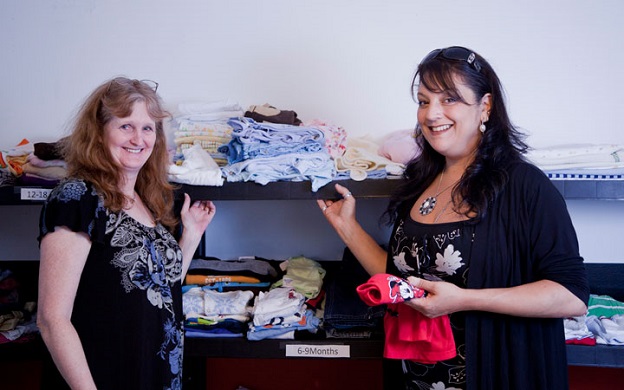“Sonia’s Cradle” Program Helps Growing Families in British Columbia.

In 2009, Sonia Nickle, a front-line worker at The Salvation Army’s Ridge Meadows Ministries in Maple Ridge, B.C., recognized a need for help within growing families in her community, so she set out to help. She began collecting donated items for babies and toddlers, such as clothing, diapers and formula to distribute to families in need. Soon after, other community agencies joined in the effort to grow their resources and reach to help more people every year.
Shortly after Nickle passed away, the program took off. As a tribute to her kindness and generosity, Sonia’s Cradle was created. The program honours her legacy of helping families in need. Today, the effort is making a difference for thousands of struggling families in the community.
“Sonia would be proud to see what her vision 11 years ago has grown into—every single month, 30-35 families receive assistance from Sonia’s Cradle,” says Mark Stewart, executive director at Ridge Meadows Ministries. “And this number has more than doubled in size with the effects of COVID-19.”
Inspired by the efforts of Sonia Nickle, the people of Maple Ridge and Pitt Meadows, B.C., continue to pull together to provide funding and donations of formula, diapers and other essentials. While the program started with one person, it has flourished and lends to the credence that “it takes a village.”
Last year, 3.2 million Canadians were reported living at or below the poverty line, including 566,000 children. In British Columbia, where the cost of living is high, many growing families are struggling to provide food, clothing and other necessities such as diapers and formula. This poses a unique challenge for parents living on a single income, seniors who have custody of raising a child and immigrants who have newly arrived in the country. The COVID-19 pandemic has added an element of difficulty for families who are already struggling to get by without help.
By Michelle Boileau
